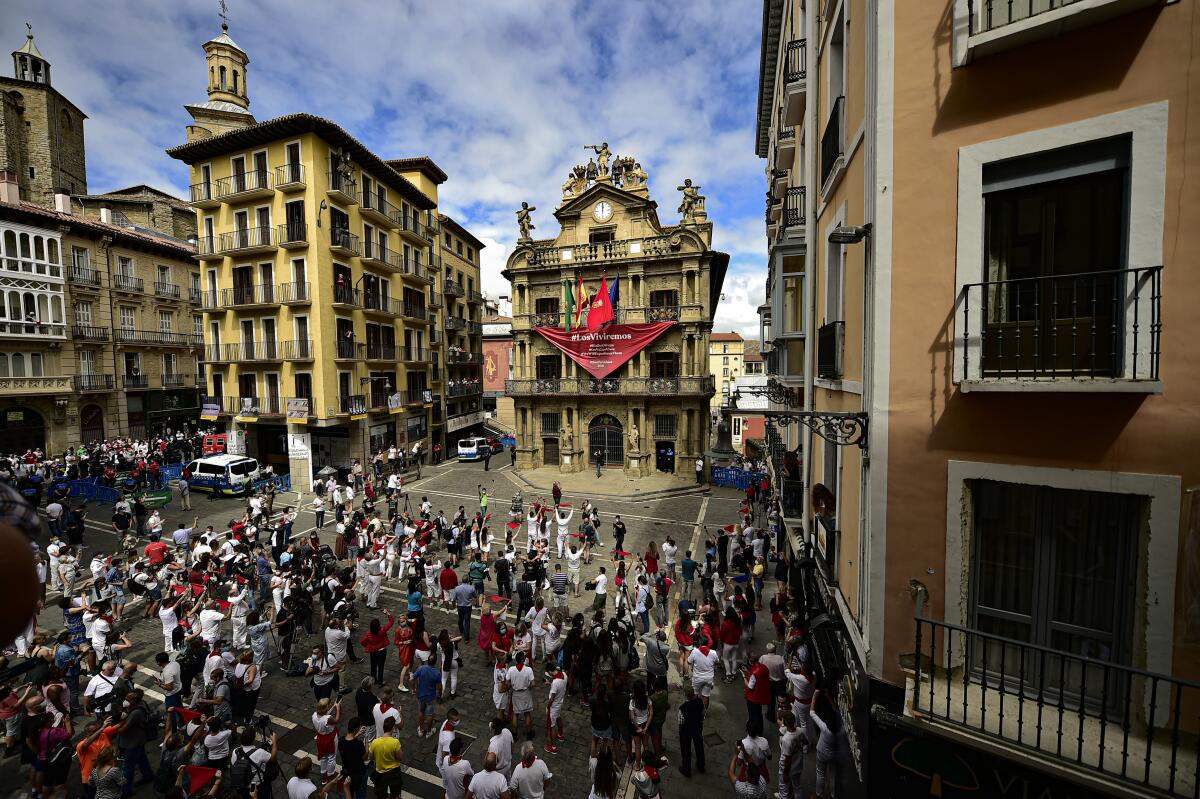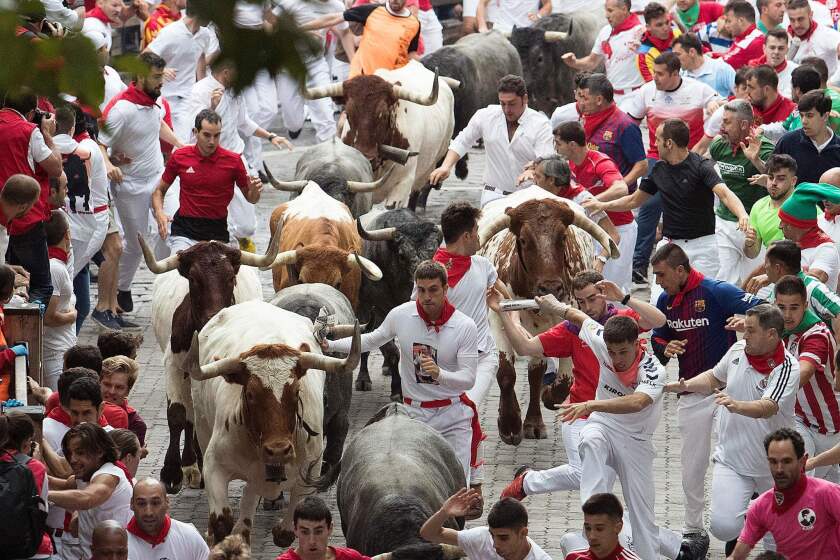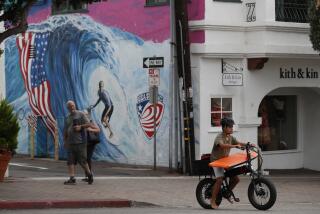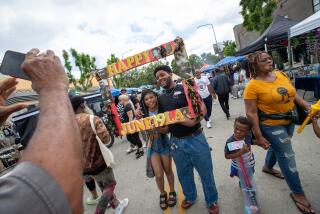No bull prize: Only humans fill Pamplona’s streets after coronavirus cancels festival

- Share via
PAMPLONA, Spain — Residents in Spain’s northern city of Pamplona dressed up Monday in white clothes and traditional red scarves to mark what should have been the start of their annual San Fermín festival, which was canceled this year because of the COVID-19 pandemic.
Known for its races with bulls running along cobbled streets, the festival was popularized by Ernest Hemingway in his 1926 novel “The Sun Also Rises” and was last called off during the Spanish Civil War in the 1930s.
With more than 28,000 deaths nationwide from the novel coronavirus and an economy in the doldrums following a strict nationwide lockdown, local authorities say there is little to celebrate.
But Joaquín Beloki, a 33-year-old resident, said one could still toast “the health of all those who have not contracted the coronavirus.” He joined together on Monday with about 400 others at a central square where normally more than 12,000 would witness the opening of the festival.
They gathered at the City Hall square at noon, the time a rocket known as “chupinazo” opens the nine-day festival in normal times. Revelers from all around the world respond to the rocket by dousing each other with red wine and champagne.
The races against the bulls are world-famous but also fraught with peril. Last year, a San Francisco man was among those injured when a bull gored him in the neck.
There is no danger of such injuries this year. Instead, a large sign from the city hall’s facade displayed the slogan #WeWillExperienceThem, an invitation to revelers to return for next year’s celebrations.
Hundreds of police officers were deployed to prevent impromptu parties at bars or on streets.
Pamplona’s mayor, Enrique Maya, told reporters that 2020 would be a pause “in which we are going to accumulate desire to celebrate in 2021.”
A video was also launched with medical personnel reminding viewers that “it is enough to be irresponsible one day to ruin three months of everyone’s efforts,” a reference to the lockdown that Spain imposed from mid-March to mid-June.
More to Read
Sign up for Essential California
The most important California stories and recommendations in your inbox every morning.
You may occasionally receive promotional content from the Los Angeles Times.











